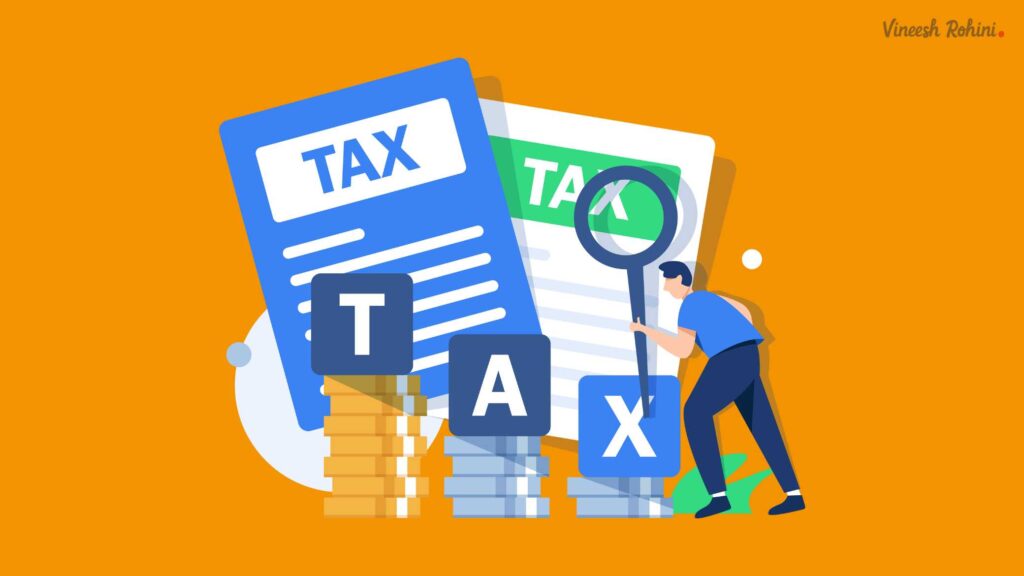Haven’t Paid Your Taxes Yet? 10 Big Changes in Income Tax Laws You Need to Know Before Filing Your ITR in 2025
Changes in Income Tax : Income tax laws and regulations in India evolve with each passing year, and the changes introduced in the Union Budget 2024 will significantly impact the way you file your Income Tax Returns (ITR) in 2025. These changes are designed to provide relief to taxpayers, simplify the tax process, and encourage various economic behaviors, including digital payments and increased savings.
Table of Contents
Let’s explore the top 10 key changes in the income tax laws and how they’ll affect your ITR filing.
1. New Income Tax Slabs

The government has made significant revisions to the income tax slabs under the new tax regime, aiming to ease the tax burden on middle-income earners.
Also Read : Post Office Deposit Scheme : Invest Rs 333 Daily and Achieve Rs 17 lakhs
The changes in these slabs will enable taxpayers to save up to Rs 17,500 annually on their tax liabilities. While this move may seem incremental, it has the potential to make a substantial difference over time. This change will directly affect your ITR filing, as you’ll need to adjust your tax calculations according to the new slabs.
2. Revised Basic Exemption Limit
Under the new tax regime, the basic exemption limit has been increased to provide more tax relief. The limit for individual taxpayers has been raised from Rs 50,000 to Rs 75,000, while for family pensioners, the basic exemption limit has increased from Rs 15,000 to Rs 25,000. This change provides greater financial freedom for these taxpayers. However, it’s important to note that the basic exemption limit for taxpayers opting for the old tax regime remains unchanged.
3. National Pension System (NPS) Contribution Limit Raised
A key change in the new tax regime is the increase in the deduction limit for employee contributions to the National Pension System (NPS). Previously, the contribution limit for tax deductions under NPS was capped at 10% of the salary. However, this cap has now been increased to 14%, offering employees the opportunity to make higher contributions to their retirement savings while enjoying additional tax benefits. This change will not only affect taxpayers who actively contribute to NPS but also have an impact on their tax planning strategies while filing ITR.
4. Changes in Tax Rates for Capital Gains
Capital gains taxation has seen notable adjustments. The tax rate for Short-Term Capital Gains (STCG) has increased from 15% to 20%, while the tax rate for Long-Term Capital Gains (LTCG) on listed shares and equity mutual funds has been increased from 10% to 12.5%. Additionally, the exemption limit for LTCG has been raised from Rs 1 lakh to Rs 1,25,000. These changes make it important for investors to carefully assess their capital gains and the tax implications of their investments when filing ITR in 2025..
5. Revised Holding Period for Capital Gains

The government has also revised the holding period requirements for capital gains taxation. Under the new rules, only two holding periods are now recognized—12 months for listed securities and 24 months for unlisted securities. This means that for listed securities, any asset held for more than a year will be classified as long-term capital gain, while for unlisted assets, a holding period of 24 months will qualify as long-term. This simplification of the capital gains taxation structure can influence your asset management and tax planning strategies.
6. TCS (Tax Collected at Source) Credit for Tuition Fees
In a bid to make it easier for middle-class families, especially those with children studying abroad, to claim tax benefits, the government has expanded the scope of TCS credit. Parents who pay tuition fees for their children studying abroad can now claim TCS credit, even if the fees are paid through a third-party (e.g., a relative or educational institution). This change is particularly beneficial for taxpayers who have paid large sums towards their children’s education abroad but have previously been unable to claim the corresponding TCS credit.
7. Tax Deducted at Source (TDS) Changes
The inclusion of RBI floating rate bonds in the list of TDS-payable bonds is another important change. With this inclusion, if the interest earned on these bonds exceeds Rs 10,000 per month, TDS will be deducted at source. This shift is essential for taxpayers to consider when filing their ITR, especially if they have income from these bonds, as they will need to factor in the TDS already deducted to claim the correct tax credits.
8. Luxury Goods Subject to TCS
The government has also imposed a Tax Collected at Source (TCS) on luxury goods purchased for amounts exceeding Rs 10 lakh. Although the specific list of luxury goods subject to this tax has not yet been released, this measure is designed to curb conspicuous consumption while boosting the government’s revenue collection. Taxpayers involved in purchasing luxury goods should stay informed about how this TCS will be implemented in the coming months, as it will need to be factored into their overall tax planning.
9. TDS on Property Sale
Another significant change relates to the Tax Deducted at Source (TDS) on the sale of property. Whether the total payment is more or less than Rs 50 lakh, TDS will be deducted from the total amount paid to the seller. This simplification of the tax rules related to property transactions aims to make the process more transparent and efficient. Sellers and buyers alike will need to account for this deduction when filing their ITR.
10. Vivad Se Vishwas Scheme 2.0
To resolve pending income tax disputes efficiently, the government has introduced the ‘Vivad Se Vishwas’ Scheme 2.0. This scheme aims to help taxpayers settle old tax cases and disputes quickly, without prolonged litigation. By opting for this scheme, taxpayers can clear their pending tax disputes and avoid further penalties. This scheme came into effect from today, and taxpayers with long-standing tax issues should consider utilizing this opportunity to resolve their cases.
Changes in Income Tax – Conclusion :

The income tax changes introduced in the Union Budget 2024 will have a significant impact on how taxpayers file their Income Tax Returns (ITR) in 2025.
Buy now : 200+ Premium Trading Courses
These changes, ranging from revised income tax slabs to adjustments in capital gains tax rates, aim to simplify the tax process while providing relief to taxpayers. It is essential for taxpayers to stay informed about these updates and incorporate them into their tax planning strategies for the upcoming financial year. Being proactive and aware of these changes will ensure smooth and accurate ITR filing for 2025.



